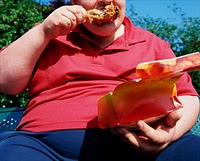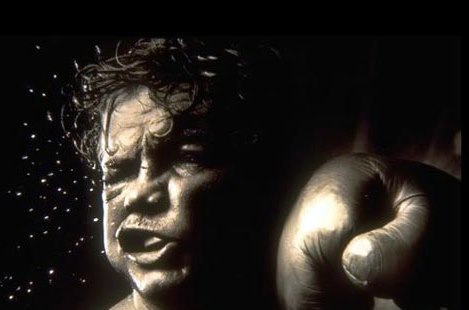I’ve been hearing a lot of stink over this toyless Happy Meal story. Maybe I can put the whole thing in perspective.
Mood music:
[youtube=http://www.youtube.com/watch?v=oU16EBurb1Q&fs=1&hl=en_US]
First, here’s the AP to tell you what happened to the beloved Happy Meal in San Francisco:
Unhealthy kids’ meals to get less ‘happy’ in San Francisco
San Francisco has become the first major American city to prohibit fast-food restaurants from including toys with children’s meals that do not meet nutritional guidelines. The city’s Board of Supervisors gave the measure final approval on Tuesday on an 8-3 vote. That is enough votes to survive a planned veto by Mayor Gavin Newsom. The ordinance, which goes into effect in December next year, prohibits toys in children’s meals that have more than 640mg of sodium, 600 calories or 35 per cent of their calories from fat. It would also limit saturated fats and trans fats and require fruits or vegetables to be served with each meal with a toy.
The horror. The frakkin’ horror. This isn’t the first time I’ve seen the Happy Meal come under assault.
When I worked at The Eagle-Tribune, Gretchen Putnam — then the features editor — got a little present in the mail from P.E.T.A. She opened the package and out popped a “McCruelty Meal.” There was the Happy Meal-like box, with a blood-splatter pattern. You open the box to find P.E.T.A. literature and the toy — A Ronald McDonald doll covered in blood with a knife in its back.
The idea was to convey that Ronald was a murderous bastard for chopping up cattle for those world-famous burgers.
Gretchen, if you read this and still have that lying around, I’ll buy it from you.
So now a few government officials decided to suck the joy out of any Happy Meal that doesn’t meet their nutritional standards.
It takes a recovering compulsive overeater to put this in the proper perspective, and I have a couple thoughts on this whole affair:
For one thing, banning the toy isn’t going to do a thing to keep kids away from McDonald’s food.
Kids know they can always find a toy someplace else, and at the end of the day it’s the fatty food they’re really after anyway. Maybe they won’t get the Happy Meal, but they will still go there and get the same stuff: The burgers, fries, chicken nuggets, etc.
And if you think it’ll keep parents from feeding their children junk, just remember that
parental stupidity is one of the things that sends children down the unhealthy path to begin with. If I’ve learned anything on my long journey to recovery, it’s that addicts can almost always trace their behavior back to their parents.
If a parent drinks or drugs to excess, there’s a better-than-average chance their kids are going to do the same thing in adulthood.
Recovering addicts have noted this thread in their own lives time and again at the 12-Step meetings I go to.

Chris Hoff, a good friend of mine from the Internet security industry and perhaps one of the most prolific presences on Twitter, saw a good example of this brand of parental failure in a coffee shop over the summer. I’ll share his tweets on the subject, since his content is all public record at this point:
Noticing a fat guy feeding his obese son three doughnuts and yelling at the poor kid for being too slow, Hoff (Twitter handle is @Beaker) wrote:
Hint: If your 4-foot-something 8-year-old weighs more than me, you’re doing it wrong. Makes me want to cry. F’ing up your life is one thing, but his?  It’s not that I’m insensitive to his plight; been there. However he’s helping end his kid’s life early by poisoning him with junk and mean words.
It’s not that I’m insensitive to his plight; been there. However he’s helping end his kid’s life early by poisoning him with junk and mean words.
He noted, correctly I think, that kids inherently know what’s healthy but they still fall into bad behavior that parents either can’t or won’t stop. Often, they enable it.
Banning the toys in Happy Meals won’t change this one bit.
The cattle prod for this item was book called “The End of Overeating.” The author is David A. Kessler, MD, and a former commissioner of the US Food and Drug Administration under presidents George H. W. Bush and Bill Clinton. I actually have a lot of respect for this guy, whose tenure included the successful push to enact regulations requiring standardized Nutrition Facts labels on food.
That, in my opinion, was a huge win for those of us who want truth in advertising.
In “The End of Overeating,” Kessler makes a compelling argument: Foods high in fat, salt and sugar alter the brain’s chemistry in ways that compel people to overeat.
“Much of the scientific research around overeating has been physiology — what’s going on in our body,” The Washington Post quoted him as saying in a story brilliantly headlined “Crave Man.”

The real question is what’s going on in the brain, Kessler says.
His theory on food as an addictive substance is as on the mark as you can get. Trust me. I’ve lived it. Binge eating is all about addiction for me.
It’s tied directly into the same corner of the brain where my OCD resides.
He is also right that sugar, salt and fat are addictive substances, though for a lot of people, the components of our poison boil down to sugar and flour.
Of course, most of the food that has flour and sugar also tends to be high in salt and fat.
The first and most important tool in my OA recovery program is a plan of eating. Flour and sugar are off the table — period. Almost everything I eat goes on a little scale. 4 ounces protein, 4 ounces raw vegetable, 6 ounces cooked vegetable, 2 ounces potato or brown rice, etc. Every morning at 6:15 I call my sponsor, someone who hears my food plan for each day and gives me the necessary kick in the ass.
But salt and fat are not forbidden for me. In fact, I’m allowed to substitute 4 ounces of meat with 2 ounces of cheese or nuts.
To some, this may sound like a typical fad diet, but people in OA have used a plan like this since the beginning. And the plan isn’t the same for everyone. If you have diabetes, for example, removing every scrap of flour from the diet isn’t usually an option. No matter. The only requirement of the program is to stop eating compulsively, no matter how you get there.
This isn’t something I pursued to drop 65 pounds, though I did lose that amount pretty quickly. This is a food plan for life — a key to my getting all the nutrition I need and nothing more. Just as an alcoholic must put down the booze or a narcotics addict has to put down the pills, I have to put down the flour and sugar.
This is the plan that got me out of the darkest days of addictive behavior and I’m a true believer.
Flour and sugar mixed together becomes a toxin that knocks the fluids in my brain out of balance. Kessler’s research is definitely in line with what’s happened to me.
But the idea of regulating food the same way as something like cigarettes? It won’t do much good.
It certainly couldn’t hurt. The nutrition labels at the very least gave us an education on what we put in our bodies, and it’s been especially helpful to parents who are trying to raise their kids healthy. Regulating cigarettes has certainly made it harder for minors to buy them.
But for the true addict, regulation is a joke.
Knowing what’s in junk food won’t keep the addict away. I always read the labels AFTER binging on the item in the package. And the labels have done nothing to curb the child obesity pandemic.
If you smoke, it’s certainly more expensive to buy a pack than it used to be. But if you crave the nicotine, you’ll find a way to get your fix. It’s the same with drugs, and with food.
I have nothing against the government types in San Francisco who want to do something about this nightmare by targeting the Happy Meal. I just don’t think their approach is going to work.





